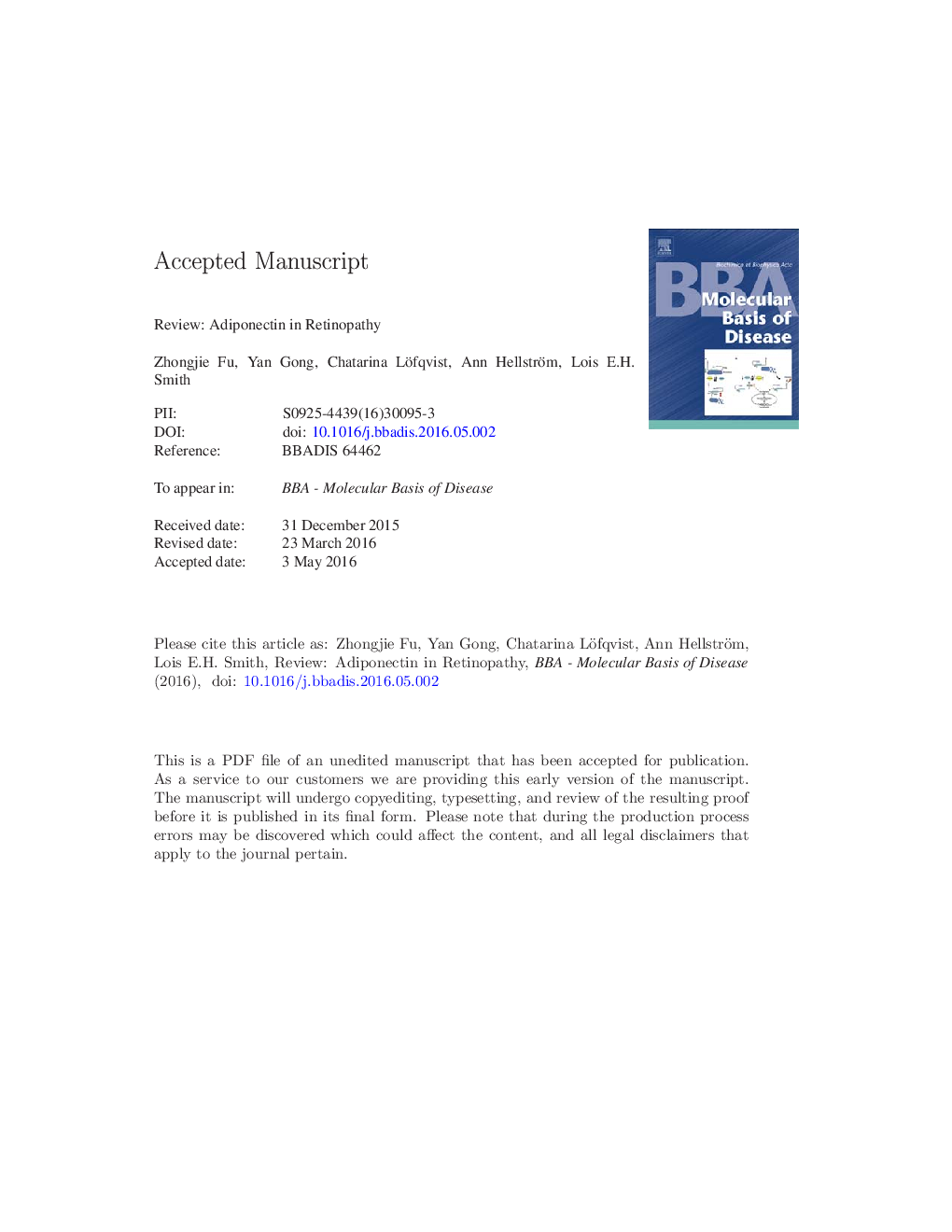| Article ID | Journal | Published Year | Pages | File Type |
|---|---|---|---|---|
| 8259152 | Biochimica et Biophysica Acta (BBA) - Molecular Basis of Disease | 2016 | 29 Pages |
Abstract
Neovascular eye diseases are a major cause of blindness including retinopathy of prematurity, diabetic retinopathy and age-related macular degeneration in which new vessel formation is driven by hypoxia or metabolic abnormalities affecting the fuel supply. White-adipose-tissue derived adipokines such as adiponectin modulate metabolic responses. Increasing evidence shows that lack of adiponectin may result in retinal neovascularization. Activation of the adiponectin pathway may in turn restore energy metabolism, to suppress the drive for compensatory but ultimately pathological neovessels of retinopathy. In this review, we will summarize our current knowledge of the role of adiponectin in eye diseases of premature infants, diabetic patients as well as the elderly. Further investigations in this field are likely to lead to new preventative approaches for these diseases.
Keywords
EPALXRsHigh molecular weight adiponectinLCPUFAHIFIGF-1PPARVEGFAAPNTNFαadiponectinArachidonic acidEicosapentaenoic aciddocosahexaenoic acidLong-chain polyunsaturated fatty acidstumor necrosis factor αDHAHypoxia-inducible factorVascular endothelial growth factor Ainsulin-like growth factor 1peroxisome proliferator-activated receptorLiver X receptors
Related Topics
Life Sciences
Biochemistry, Genetics and Molecular Biology
Ageing
Authors
Zhongjie Fu, Yan Gong, Chatarina Löfqvist, Ann Hellström, Lois E.H. Smith,
